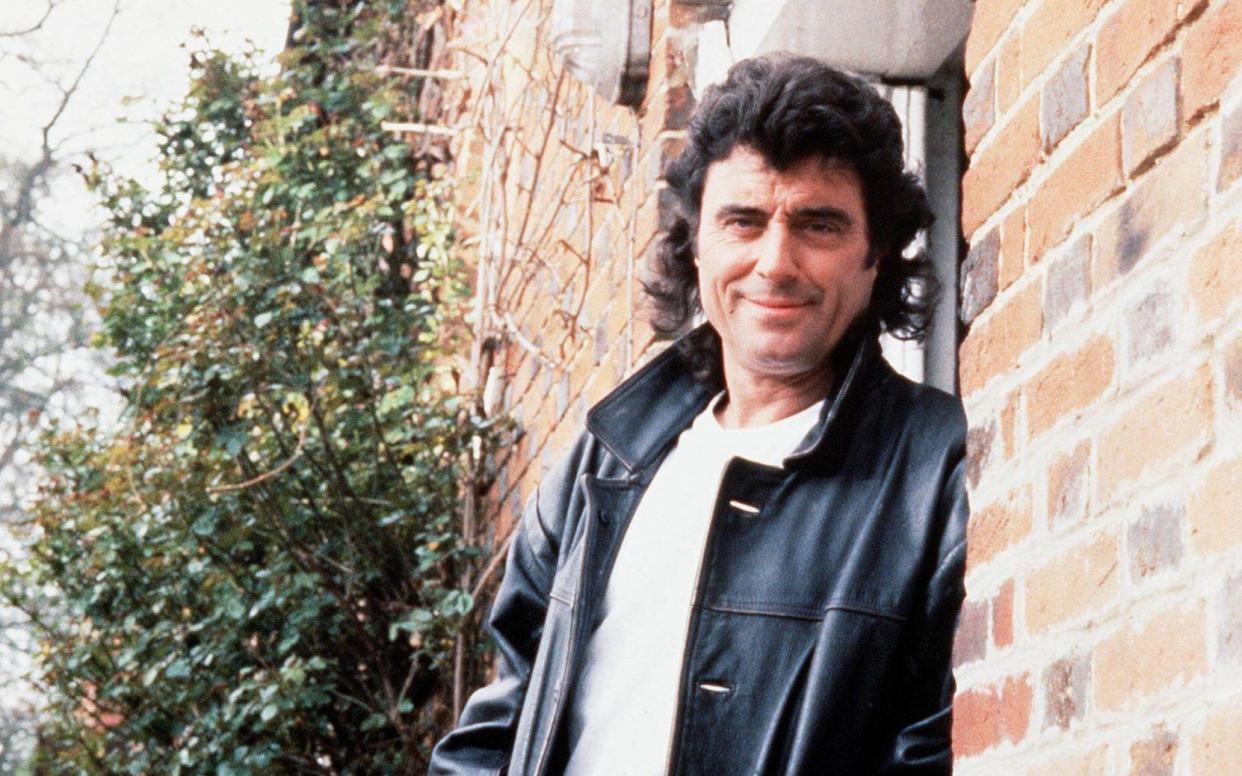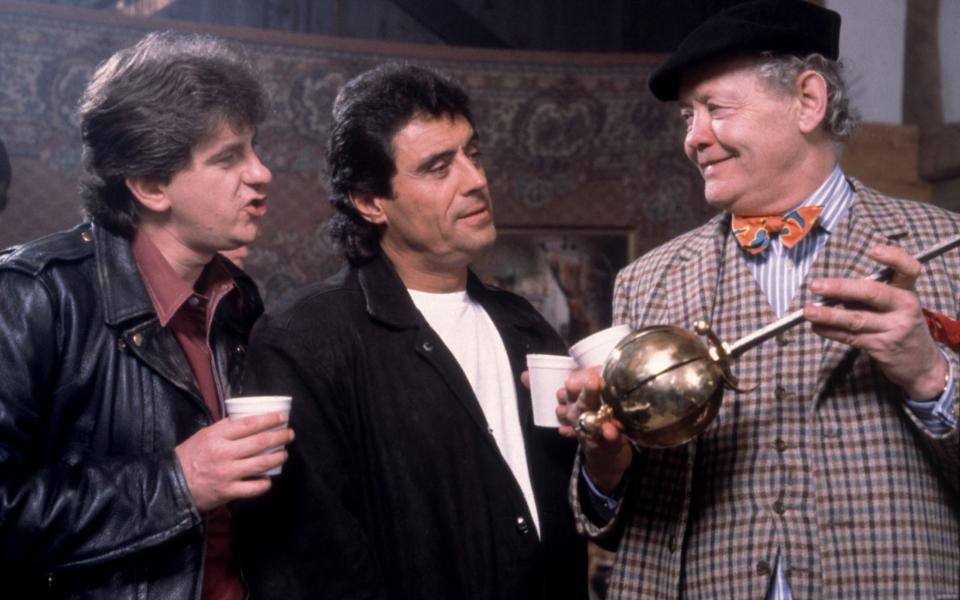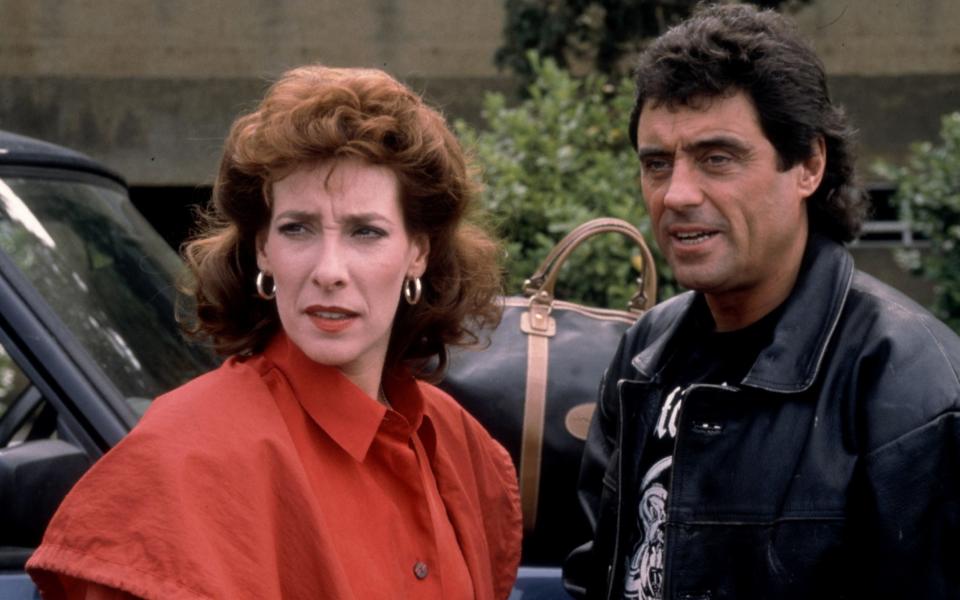‘He liked antiques and women – but not antique women’: Why the BBC should bring back Lovejoy

A beloved British drama from the 1980s is soon returning to our screens. Its enigmatically rugged, leather-jacketed hero became a firm housewives’ favourite. Its sun-dappled setting was a feast for the eyes. But enough about the imminent Bergerac reboot. How about reviving another of the era’s classics, the much-missed Lovejoy? Happily for TV commissioners, original star Ian McShane knows exactly how to do it.
In a recent interview, McShane said: “People have forever talked about reviving Lovejoy. I’ll tell you how to do it again in four words: ‘Make it a woman.’ In the series, I had a daughter. So you could bring back his daughter and have some attractive, very good actor in her 40s play the part. That would be the way to go.” If the BBC has got any sense, it should seriously consider taking him up on the idea.
The series was based on the picaresque mystery novels by Jonathan Gash – a pen name of bacteriologist Dr John Grant – about a roguish antiques dealer. McShane liked the books so much, he snapped up the screen rights and drafted in his old friend, sitcom maestro Ian La Frenais, to write an adaptation. A long-running hit was born, with McShane as the maverick wheeler-dealer who was “a bit dodgy but on the side of the angels”.
Lovejoy – rather like the original Morse he never had a first name – had a reputation in antique circles as a “divvy”, or a diviner. With near-supernatural powers, he could sniff out a genuine treasure in a warehouse full of worthless rubbish. Scouring auction houses and flea markets, he was uncannily adept at distinguishing the real deal from fakes and forgeries.
His attachment to antiques was romantic rather than covetous. In the presence of exceptional items, Lovejoy’s heart would race. His senses would tingle. He didn’t want to own them, just help them find a worthy home. He was in it for the love of the game, the thrill of the chase. He was also something of an amateur sleuth and an inveterate womaniser. As McShane once said: “He liked antiques and women – but not antique women.”

The irresistible rascal plied his trade in well-to-do Suffolk, where his long hair, jeans and cowboy boots marked him out as outsider. His craggy charisma and swashbuckling attitude meant this rough diamond could mix with people from all social strata. He would cruise the scenic East Anglian countryside in a Morris Minor convertible called Miriam, visiting sales rooms and stately homes, always on the lookout for a find.
Lovejoy’s sidekicks were hapless apprentice Eric Catchpole (Chris Jury) and boozily erudite tout Tinker Dill (Dudley Sutton). The last piece of the jigsaw was “posh bit of stuff” Lady Jane Felsham (Phyllis Logan), Lovejoy’s witty co-conspirator and will-they-won’t-they love interest. This dream team had a delightful comic dynamic.
Their recurring nemesis was cigar-puffing Charlie Gimbert (Malcolm Tierney), a nouveau riche auction house owner. As he memorably said: “Since my wife died, Lovejoy, I need someone to hate.” Each week, our eponymous hero would become embroiled in a scrape or scheme. Each week, the basically decent Lovejoy would get the better of greedy toffs or unscrupulous scammers. If an innocent had been fleeced, he’d return their rightful dues (usually for a small consideration, of course). It was a knowing riff on the time-honoured Robin Hood story.
As well as its loveable leading man, Lovejoy’s strength was its assured scripts, which were light, playful, jauntily paced and quintessentially British. McShane – a man who cheerfully admits he “wouldn’t know a Chippendale from a chip pan” – says the show “stands up very well because of the quality of the writing”. Its trademark was how Lovejoy broke the fourth wall, occasionally turning to the camera for a conspiratorial aside, a wry quip or to ask the viewer: “Well, what would you have done?” Lovejoy was doing it fully three decades before Phoebe Waller-Bridge in Fleabag.
Running for 71 episodes across eight years, Lovejoy became a reliable ratings-grabber. Airing on Sundays at 8pm, it was family-friendly viewing – often scheduled in a double bill with its factual cousin, Antiques Roadshow. It attracted 16m viewers at its peak and was exported to 40 countries worldwide. Reruns on Gold became one of the archive channel’s biggest bankers.
Like a forerunner of current fixtures Death in Paradise and Midsomer Murders, it attracted high-calibre guest stars. The likes of John Gielgud, Frank Finlay, Celia Imrie, Brian Blessed, Joanna Lumley, Tom Wilkinson and Donald Pleasence all popped up. The show was also a stepping stone for rising young talent such as Martin Clunes, Toby Jones, Julia Sawalha, James Nesbitt, Dougray Scott and Minnie Driver (indeed, the latter might not be a bad shout for a daughter-led reboot).
A reboot has been mooted before. Sky explored the idea in the early Noughties. In 2015, the estimable Tony Jordan (EastEnders’ former lead writer and the man behind the Lovejoy-esque Hustle) was reportedly working on a remake. In 2019, Golden Globe-nominated producer Nick Witkowski was said to be developing a contemporary update. None came to fruition. McShane cannily had the foresight to produce the show himself and retains the rights, so any comeback would need his blessing.
Now aged 81, McShane remains a potent on-screen force. He has considerable capital with younger audiences, thanks to his roles in HBO drama Deadwood, Neil Gaiman’s American Gods, cult gangster flick Sexy Beast and the John Wick film franchise. He could lead Lovejoy Mk II, before passing on the torch. As he says: “You could have 30 minutes of people saying ‘Lovejoy’s coming back’, then this gorgeous blonde or redhead walks through the door. That could work.”

Even 30 years since Lovejoy signed off – the final episode was Last Tango in Lavenham; its last line “Lovejoy doesn’t live here anymore” – making antiques the backdrop to a drama would work a treat. They remain all the rage on TV. Antiques Roadshow has since been joined by the likes of Bargain Hunt, The Bidding Room, Cash in the Attic and The Repair Shop. Free-wheeling Lovejoy was always a breath of fresh air in this rarefied world.
Meanwhile, cosy crime has perennial appeal. Antiques plus cosy crime is surely still a killer combination. With 24 novels as source material and the ever-changing world of collectibles to draw on, you’d never run out material. Dudley Sutton and Malcolm Tierney are sadly no longer with us but Logan has expressed enthusiasm about the possibility of revisiting her role. Now best known as Mrs Hughes from Downton Abbey, Logan has said she’d return “in a heartbeat”.
Chris Jury, aka Eric, once speculated about what could stand in the way of a comeback: “I always felt many of the metropolitan TV industry types were slightly embarrassed by Lovejoy. It wasn’t cynical, urban, edgy or cool enough for them. Like Heartbeat and Last of the Summer Wine, it was innocent, rural, funny and nostalgic – and, of course, immensely popular with the public.”
Right now, though, populist primetime programmes with regional settings are precisely what the BBC needs. Lovejoy would fit the bill like an antique velvet glove. Looks to camera: Well, what would you do?
